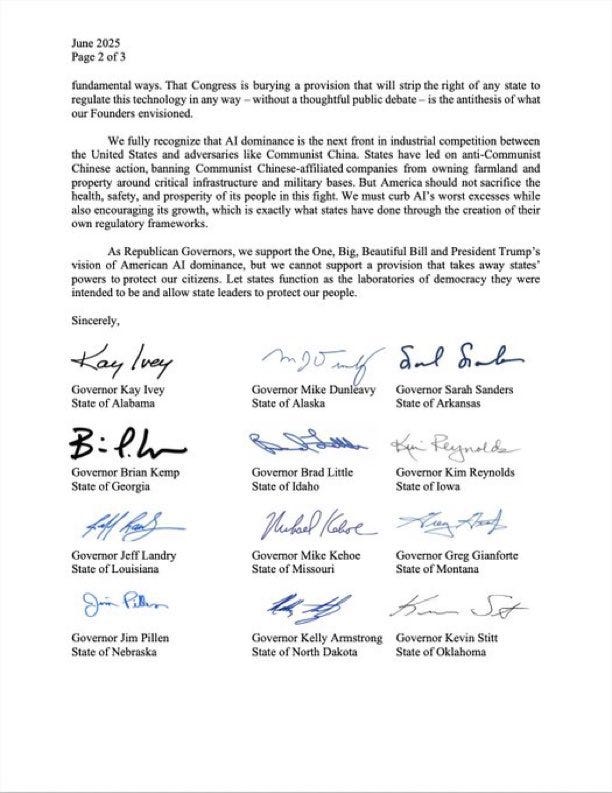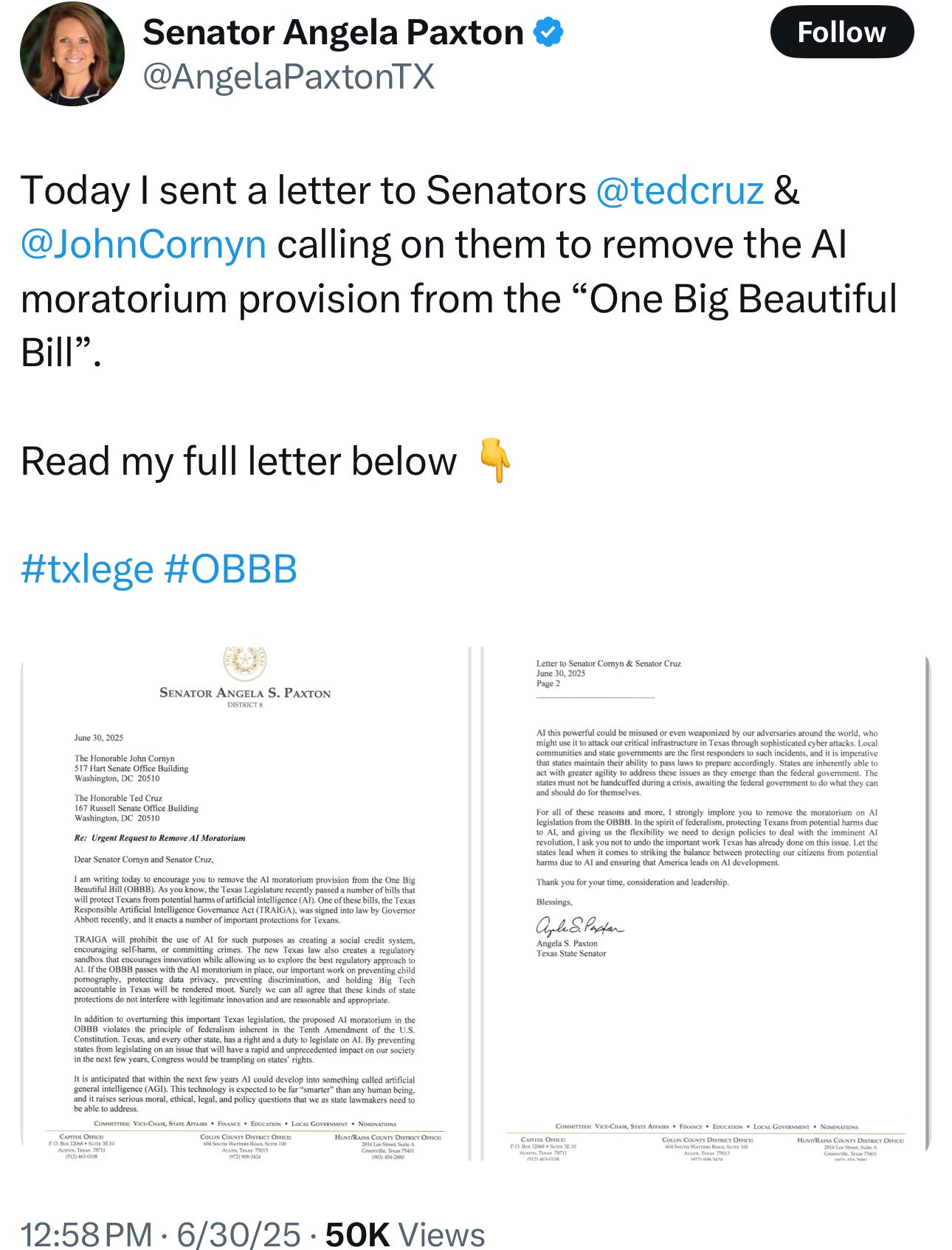Senate Overwhelmingly Removes Controversial AI Moratorium from “One Big Beautiful bill”
In a decisive 99-1 vote on July 1, 2025, the U.S. Senate removed a controversial provision from H.R. 1, known as the “One Big Beautiful Bill,” that would have imposed a 10-year moratorium on state-level artificial intelligence (AI) regulations. The decision, driven by bipartisan opposition and vocal criticism from state officials, preserves states’ abilities to regulate AI technologies and address emerging risks such as deepfakes, algorithmic discrimination, and child safety.
H.R. 1, a sweeping tax and spending bill advanced by House Republicans on May 22, 2025, with a 215-214 vote, included a provision to block states from enforcing laws or regulations limiting AI models, systems, or automated decision systems involved in interstate commerce for a decade. Proponents, including some tech industry leaders like OpenAI’s Sam Altman and a16z’s Marc Andreessen, argued that a patchwork of state regulations could stifle AI innovation and hinder U.S. competitiveness, particularly against China. The moratorium was championed by Sen. Ted Cruz (R-TX), chair of the Senate Commerce Committee, who initially proposed tying compliance to federal broadband funding to incentivize states to pause AI regulations.
Yet, the provision faced immediate backlash. Critics, including consumer protection groups, state lawmakers, and even some Republicans, argued it would undermine states’ rights and leave consumers vulnerable to AI-related harms, such as unauthorized deepfakes, biased hiring algorithms, and risks to children from addictive AI chatbots. The moratorium’s wide-ranging language threatened to nullify existing state laws, like Tennessee’s ELVIS Act, which protects artists’ voices and likenesses from AI-generated deepfakes.





